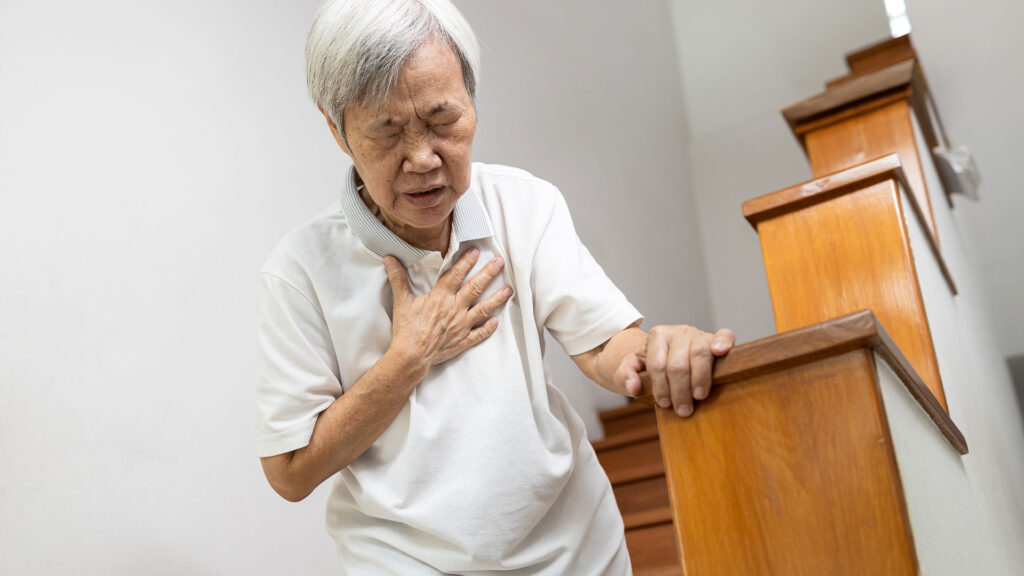
Emergencies happen every day. That’s why we have comprehensive emergency services at
St. Michael’s Elite Hospital in Sugar Land, Texas. Don’t hesitate to contact us, or drive right up, if you or a loved one is experiencing life-threatening symptoms or is at risk of suffering permanent damage.
Getting timely medical care can save a life. Here are eight non-negotiable reasons to seek emergency care.
1. Difficulty breathing
Difficulty breathing can indicate a significant problem. Seek emergency care if difficulty breathing is sudden or if you also feel pain in your chest. Emergency care is required if your lips and nails turn bluish or gray.
Difficulty breathing accompanied by nausea, drowsiness, confusion, fever, and a rapid heartbeat also mean you should come to the ER immediately.
If you have an at-home remedy for breathing problems, such as an inhaler for asthma, and it’s not helping, or you notice the breathing trouble stops you from doing anything at all — don’t hesitate to visit St. Michael’s Elite Hospital.
2. Poisoning
If you, a loved one, or a child have consumed a poisonous substance, seek emergency care right away — even if they aren’t showing symptoms. Some substances are only toxic in very large amounts, and certain substances may be okay for adults but can be poisonous for small children.
Examples of poisonous substances include carbon monoxide, chemicals, and alcohol. Suspect poisoning as a possible cause of symptoms like drowsiness, unusual breath odor, trouble breathing, unconsciousness, seizures, sores around the mouth, drooling, and abdominal pain.
3. Severe abdominal pain or pressure
Abdominal pain happens every once in a while, but if you have pain that continues, worsens, radiates to your back, or your tummy is tender to the touch, head to the ER.
People who have recently undergone abdominal surgery, including gastric bypass, or an endoscopy, women who are pregnant, or patients older than 45 with severe abdominal pain should also seek emergency care. The pain could indicate an infection, miscarriage, or heart attack.
4. Chest pain
If you feel chest pain, head to St. Michael’s Elite Hospital to be checked for a heart attack. More signs and symptoms of a heart attack include:
- Excessive sweating
- Nausea or dizziness
- Confusion
- Difficulty breathing
- Pain that radiates to your back
- Squeezing or crushing pressure under your breastbone
- Low blood pressure or irregular heartbeat (rapid or slow)
In the United States, a person has a heart attack every 40 seconds.
5. Persistent vomiting
Vomiting isn’t always a sign of a digestive problem. It can also indicate problems with the heart or neurological system. Visit the ER if vomiting seems to be a sign of a serious medical condition or you vomit so much that you start to experience complications like dehydration.
Vomiting accompanied by a severe headache, chest pain, shoulder or arm pain, loss of consciousness, trouble staying awake, trouble speaking or confusion, inability to stand or walk, trouble breathing, rash or hives, mouth or lip swelling, or dizziness requires emergency care.
Signs of dehydration include a racing heart, dark-colored urine, pale skin, and confusion.
6. Head injury
Head injuries don’t always show outward symptoms but may cause damage to the brain. Go to the ER if a person loses consciousness at the time of the injury, exhibits confusion after the injury, has a headache, nausea, or vomiting, or shows a deteriorating mental status.
If a person experienced a head injury within the last 24 hours and is developing these behaviors, seek emergency care:
- Unusual behavior
- Worsening symptoms, including headache
- Weakness, numbness, slurred speech
- Difficulty with eye movements
- Seizure
- Repetitive vomiting
- Difficulty waking up or arousing
- Discharge of clear fluid or blood from the nose or ears
Head injuries can also affect the spine and nervous system.
7. Uncontrollable bleeding
If you experienced a knife wound or other cut and bleeding cannot be controlled with compression and elevation, head to the ER immediately. Also, seek care if a woman is suffering severe vaginal bleeding, especially if she’s pregnant. A recent surgical site that reopens also needs immediate care.
8. Change in mental status
If a loved one has an abrupt change in mental status, seek emergency care. It could indicate a stroke, abnormal blood sugar levels, low oxygen levels, heart failure, a mental health problem, or medication side effects.
Changes in mental status include:
- Disorientation, such as the inability to recognize familiar faces
- Agitation
- Confusion
- Paranoia
- Delusional thinking
- Hallucinations
A change in mental status can put a person at risk to themselves and others.
If you’re in doubt as to whether to head to the emergency room, remember: It’s always better to be safe than sorry. We have the technology and expertise to treat your emergency. Contact our hospital if you have any questions or concerns.
 When Is Chest Pain an Emergency?
When Is Chest Pain an Emergency?
